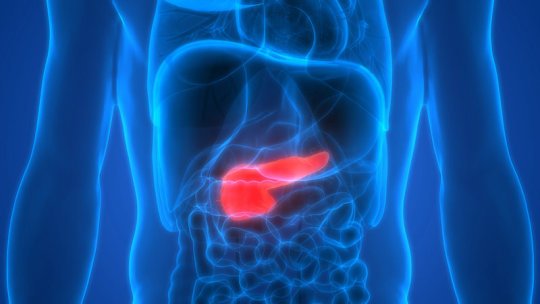
MIT engineers, in collaboration with scientists at Cancer Research UK Manchester Institute, have developed a new way to grow tiny replicas of the pancreas, using either healthy or cancerous pancreatic cells. Their new models could help researchers develop and test potential drugs for pancreatic cancer, which is currently one of the most difficult types of cancer to treat.
Using a specialized gel that mimics the extracellular environment surrounding the pancreas, the researchers were able to grow pancreatic "organoids," allowing them to study the important interactions between pancreatic tumors and their environment. Unlike some of the gels now used to grow tissue, the new MIT gel is completely synthetic, easy to assemble and can be produced with a consistent composition every time.
"The issue of reproducibility is a major one," says Linda Griffith, the School of Engineering Professor of Teaching Innovation and a professor of biological engineering and mechanical engineering. "The research community has been looking for ways to do more methodical cultures of these kinds of organoids, and especially to control the microenvironment."
The researchers have also shown that their new gel can be used to grow other types of tissue, including intestinal and endometrial tissue.
Griffith and Claus Jorgensen, a group leader at the Cancer Research UK Manchester Institute, are the senior authors of the paper, which appears today in Nature Materials. The lead author is Christopher Below, a former graduate student at the Cancer Research UK Manchester Institute.
| Webiste | ScienceDaily- https://www.sciencedaily.com/ |
|---|---|
| Article Name | Engineers grow pancreatic 'organoids' that mimic the real thing |
| Source | Massachusetts Institute of Technology |
| You can find the article here | https://www.sciencedaily.com/releases/2021/09/210913135619.htm |